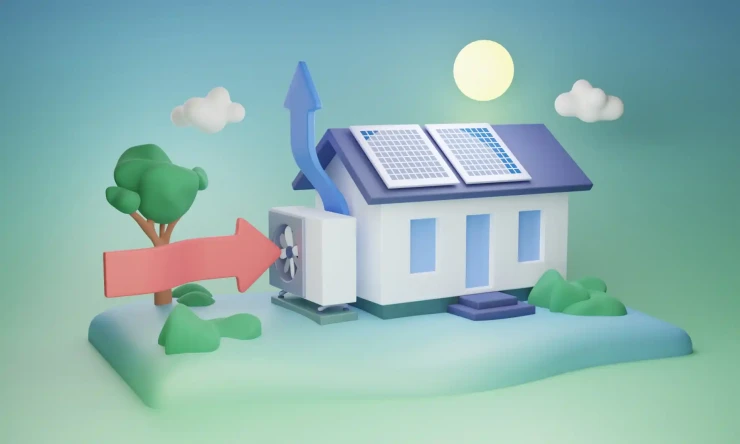According to the latest research from BloombergNEF, corporations around the world purchased a record 36.7 gigawatts in renewable energy last year. This was up a substantial 18% from 2021 levels.
However, corporate buyers are changing their expectations of the process as the renewable industry shifts into a seller’s market. The clean power procurement practices and models that have served corporate buyers so well for the past 5 years or so now require an overhaul.
US based technology company, Salesforce recently announced that it will purchase 280,000 megawatt hours (MWh) of renewable energy certificates over the next eight years to support various small-scale distributed clean energy initiatives such as solar microgrids for isolated and rural communities in developing countries including small projects in Brazil, India, Southeast Asia, and Sub-Saharan Africa. It will also help them maintain their commitment to match 100% of the electricity it uses with renewables.
This is still only a tiny sliver of the renewable energy Salesforce procures each year in pursuit of its climate goals: In fiscal year 2023, ended Jan, 31st, the company was involved in projects generating close to 850,000 MWh (pending an audit). The new project will generate roughly 35,000 annually.
The deal disclosed by Salesforce makes use of a relatively untried financial mechanism called distributed renewable energy certificates (DRECs), enables organizations to accelerate deployment of capital for small-scale, distributed renewable projects to drive this new clean energy supply.
Salesforce has contracted with Powertrust which is an aggregator of high-impact renewables around the world. This partnership and others such as the one announced by Microsoft, through its unique link-up with turn-key solar supplier Qcells gives us an idea of what the future may hold.
While Salesforce’s latest strategy is to look outside the U.S. the relationship Microsoft disclosed with solar company Qcells is very much focused on supporting new development in the United States.
The deal provides for Microsoft to buy at least 2.5 gigawatts in solar panels from Qcells. The solar company’s South Korean parent, Hanwha Group, is investing $2.5 billion to build manufacturing facilities in rural Georgia, a development made possible through a tax credit in the Inflation Reduction Act. Aside from the panels, Qcells also provides engineering, procurement, and construction services for solar installations.
Brian Janous, general manager of energy and renewables at Microsoft said that the most important benefit from the deal with Qcells was going to be flexibility and speed. Understanding the industry challenges from tariffs to slow interconnection keeps him awake at night though he says that its remarkable what they have managed to achieve with the growth in corporate renewable purchases. However, he believes that the next 10 years are going to be even more challenging.
The deal with Qcells doesn’t mean Microsoft can’t work with other solar development companies. Although this is the first deal of its kind it is likely that there will be more to come in the future.
According to a spokesperson for Qcells, Marta Stoepker, Qcells is also open to potential strategic relationships with other corporate buyers. The company wants to make it as easy as possible for commercial deals to get done.
Data from the latest BNEF research accentuates the fact that a vast majority of all corporate purchases are centred on North America and Europe. This is mainly due to favourable regulatory climates and the existence of power purchase agreement (PPA) contract structures that enable companies to offtake energy from wind and solar installation. Last year, for example, contracts in the Americas accounted for almost two-thirds of the total.
Megan Lorenzen, who leads power sector decarbonization for Salesforce and is co-author of the More than a Megawatt report said:
“Nearly 95% of corporate renewable energy purchases today take place in North America and Europe. We need to ensure the rest of the world isn’t left behind.”
The deals that are being made today reveal a growing concern among buyers about how to support projects in emerging economies.
Today, more than 750 million people lack access to basic electricity, while 2 billion more suffer from inadequate and unreliable access. Distributed renewable energy projects can provide much needed access to electricity and help reduce emissions in communities around the globe. However, until now, emerging countries have been largely excluded from corporate purchasing for a number of reasons, including difficulty aggregating and certifying multiple small-scale projects.
Salesforce’s D-RECs purchase will focus on procuring projects in non-traditional markets like India and other emerging markets to help deliver social and environmental benefits to communities. For example, one such project will lead to the installation of a solar-powered microgrid in Nagaland where an isolated mountain community will receive electricity for the first time.
The clean energy transition modelled by the International Energy Agency requires a huge investment in emerging and developing countries, at least $600 billion in capital investment. This has failed to materialise so far. One of the challenges is that under today’s carbon accounting rules and guidelines, corporate clean energy buyers generally only receive credit for investments in regions in which they currently do business. This was something acknowledged by 9 companies including Salesforce that created the Emissions First Partnership. Part of their mission statement says:
“As climate action has accelerated over the last decade, our organizations are ready to embrace an accounting framework that moves beyond the current approach of megawatt-hour matching, and focuses on the heart of the matter, emissions impact.”
In many cases, small decentralised renewable energy projects can deliver greater impact than large utility-scale facilities. This is especially true in regions where energy access is limited, and projects can positively transform lives and communities around the globe.





























